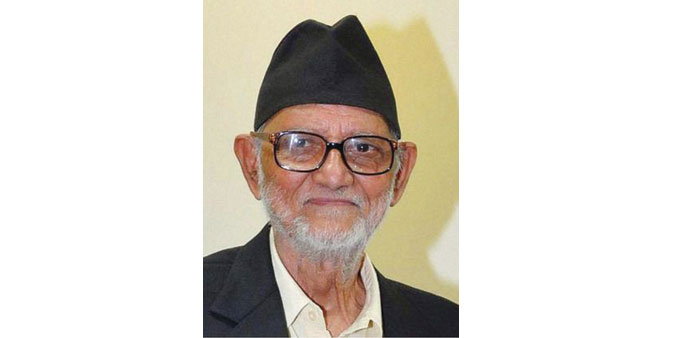IANS
Kathmandu
With consensus again eluding the Nepali constituent assembly, the unicameral legislature of the Himalayan nation will elect a new prime minister tomorrow, speaker Subash Chandra
Nembang announced yesterday.
As a post-script to the drafting of the country’s new democratic federal constitution, adopted by an overwhelming majority on September 20, Prime Minister Sushil Koirala is slated to step down to facilitate the election of a new premier.
Communist Party of Nepal (Unified Marxist-Leninist) chairman Khadga Prasad Oli remains a strong contender for the post though he failed to muster consensus in his favour - as touted in the run up to the adoption
of the new constitution.
And to make the scenario more interesting, outgoing premier Koirala, of the Nepali Congress, was expected to throw his hat in the ring to fight for a second term after successfully stewarding the passage of the new constitution.
The country’s new charter mandates installation of a new prime minister and thereafter the president, vice president and speaker of parliament by the Constituent Assembly within weeks of its adoption.
Candidates will be able to file their nominations today for the prime ministerial election that will be held from 11am tomorrow.
President Ram Baran Yadav had awarded a week’s time to the political parties to elect on the basis of consensus a new prime minister as per the constitutional provision. But this time expired yesterday.
None of Nepal’s major political parties could secure the confidence of all 31 political parties represented in the 598-member constituent assembly following which the president called for moving ahead with the process of holding an election.
Speaker Subas Chandra Nembang read out a letter by the president and informed Nepal’s parliament yesterday that the election to the post of prime minister will be held at 11am yesterday as per Article 298(3) of the constitution of Nepal-2015.
Koirala’s Nepali Congress and Oli’s CPN (UML) formed a coalition government in 2014 after the two parties together won nearly two-thirds of the seats in parliament. The Unified Communist Party of Nepal (Maoist) - the third-largest group in parliament, formed the main
opposition.
These three parties later joined hands to facilitate the passage of the new constitution in the 598-member house last month.
But the adoption of the new charter irked the residents of the southern Nepali Terai plains who felt that their demands had been ignored. Protestors, unhappy with the new constitution, have since been agitating in southern Nepal blockading highways and border points with India leading to a scarcity of essential
commodities.

Prime Minister Sushil Koirala is slated to step down.
